Crete, the largest of the Greek islands, is not just a place of breathtaking landscapes and ancient history—it is a land deeply rooted in tradition and values. Cretans are known for their warm hospitality (filoxenia), a heartfelt practice of welcoming strangers as friends, and their strong sense of honor and integrity (filotimo), which governs their daily lives. However, as a generally conservative people, Cretans hold their customs and etiquette in high regard. This guide explores common cultural missteps to avoid when interacting with Cretans, helping you show respect and connect meaningfully with the island’s proud and hospitable locals.
Dress Code and Appearance in Crete
Cretans take pride in their appearance and expect visitors to show respect through appropriate attire, especially in certain settings.
Do not wear sloppy attire in public settings. While casual clothing is acceptable in many situations, maintaining a neat and presentable appearance shows good manners, which Cretans value highly.
Do not underdress for social outings. Greeks, including Cretans, tend to dress up for social gatherings, even for casual dinners or coffee. Men often wear trousers and collared shirts, while women opt for stylish yet modest outfits.
Do not enter religious sites in revealing clothing. When visiting churches or monasteries, avoid wearing shorts, sleeveless tops, or skirts above the knee. Women should cover their shoulders and arms, and men should avoid tank tops. Many religious sites provide wraps for visitors who aren’t dressed appropriately, but it’s better to come prepared.
Do not dress too casually in villages. In rural areas, overly casual or revealing attire is frowned upon. The more remote and mountainous the village, the more conservative the dress expectations typically are.
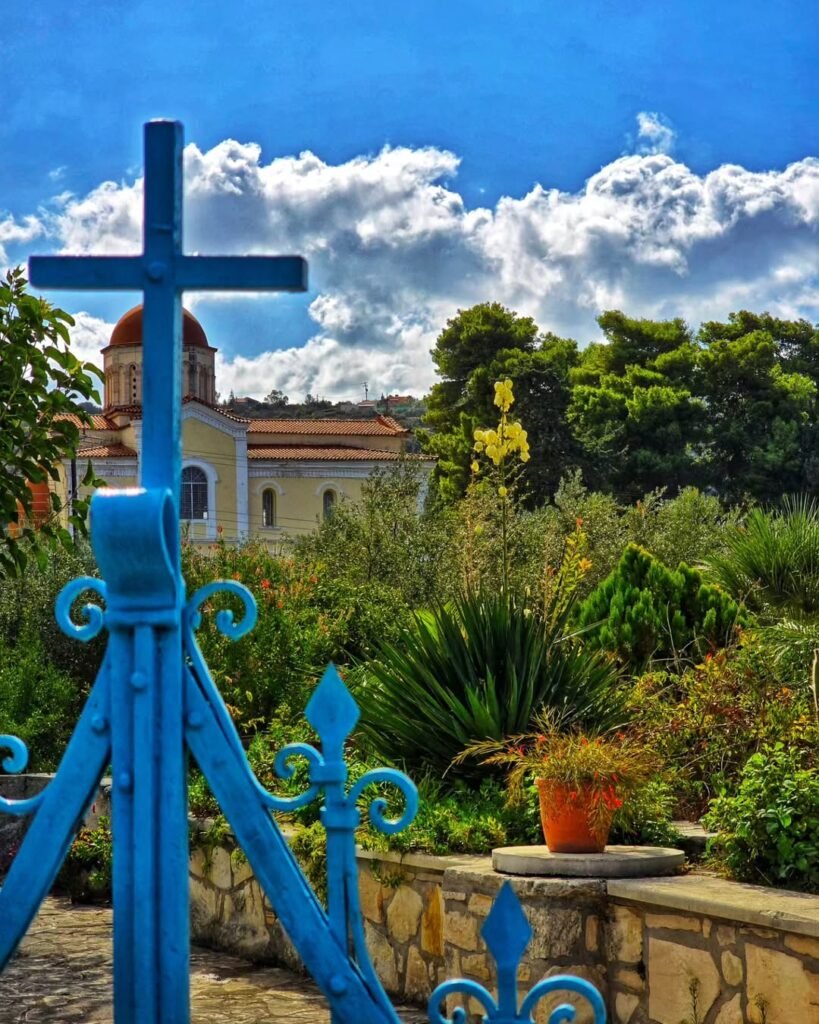
Do not engage in topless sunbathing near churches, family beaches, or conservative areas. Even on beaches, respect local norms by covering up in these locations.
A practical tip: Carry a light scarf or shawl with you. This versatile accessory can be used to cover shoulders or legs when visiting religious sites or shield against the sun during outdoor excursions.
Greetings and Social Interactions in Crete
Social interactions in Crete follow specific protocols that might differ from what you’re used to in Western Europe or North America.
Do not skip greetings. Always acknowledge people with a warm greeting when entering shops, restaurants, or meeting someone. A simple “Kalimera” (good morning) or “Kalispera” (good afternoon) goes a long way. If you make a mistake or accidentally inconvenience someone, saying “Συγγνώμη” (Signomi)—meaning “I’m sorry” or “Excuse me”—shows humility and respect. It’s a small gesture that can leave a positive impression.
Similarly, when leaving or saying goodbye, using “Να ‘σαι καλά!” (Na ‘se kala!)—meaning “Be well!”—is a warm and friendly farewell that locals appreciate. It reflects kindness and positivity, leaving the interaction on a high note.
Do not rush conversations. The “siga siga” (slowly slowly) lifestyle extends to social interactions. Hurrying through a conversation or showing impatience can be seen as rude. Take your time, listen attentively, and engage thoughtfully.
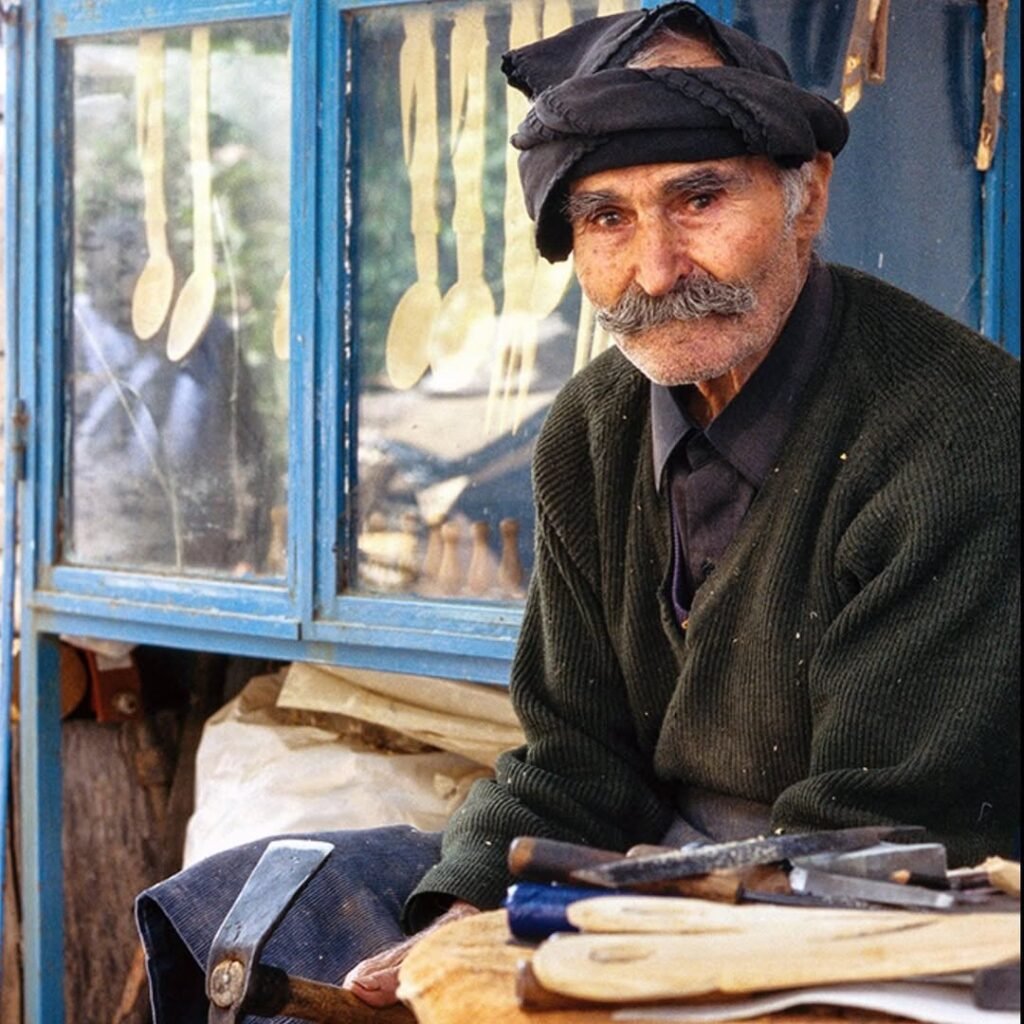
Do not use offensive hand gestures. Avoid gestures like the “OK” sign (forming a circle with your thumb and forefinger) or holding your hand up with the palm facing outward (the “moutza”), as these are considered extremely rude in Greek culture.
Do not skip small talk. Cretans often engage in casual conversation before discussing serious matters. Asking about someone’s family or complimenting their village is considered polite and helps establish rapport.
Do not be too reserved. Cretans value directness and openness. Being overly reserved or hesitant in conversations may be perceived as disinterest or coldness.
Do not overlook local dialects. In mountain villages especially, locals often speak Cretan Greek among themselves rather than standard Modern Greek. Using Cretan-specific phrases like “Ήντα κάνεις;” (Índa kánis?) instead of “Τί κάνεις;” (Tí kánis?) for “How are you?” can charm locals and show an effort to connect with their unique culture.
Dining Etiquette in Crete
Meal times in Crete are social affairs rather than just occasions for nourishment. Understanding the dining customs will help you navigate these important social situations gracefully.
Do not begin eating before the host when invited to someone’s home. Wait for them to indicate it’s time to start eating.
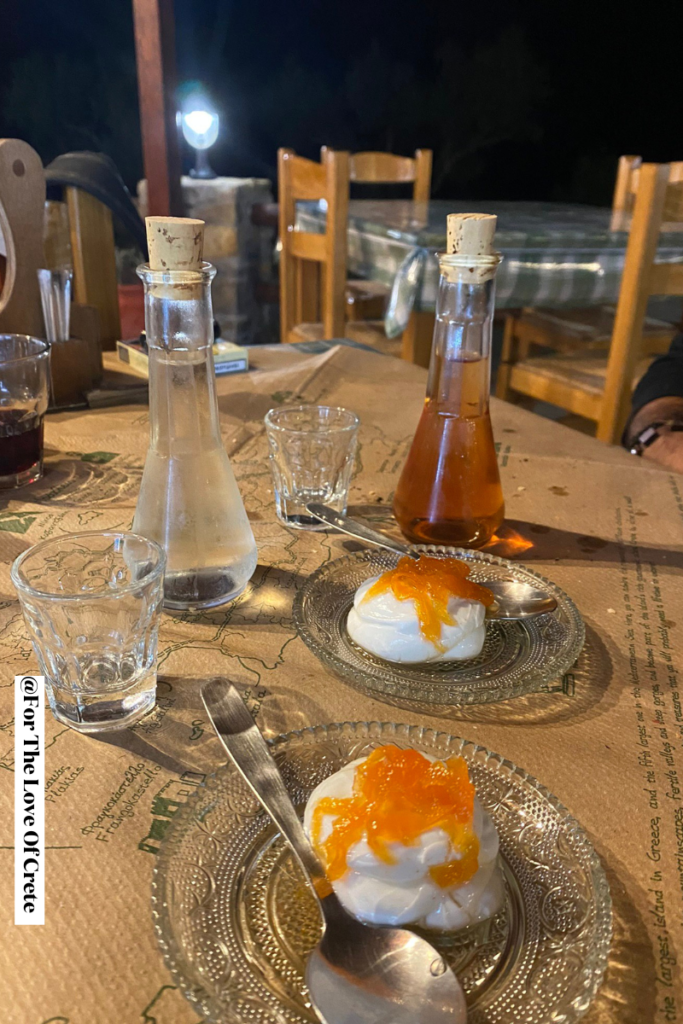
Do not refuse food or drink offerings. Declining what’s offered can be interpreted as an insult. It’s customary to accept what’s offered, even if you only take a small portion. This is especially true for raki (tsikoudia), the local spirit that’s often served after meals along with dessert—refusing it might be seen as rejecting their hospitality.
Do not forget to say “Γειά μας!” (Yiamas)—meaning “Cheers!”—when raising a glass during meals or celebrations. This phrase, which translates to “To our health,” is commonly used across Greece and reflects the communal spirit of sharing drinks and good company. Joining in with a heartfelt “Yiamas!” shows your enthusiasm for local traditions and fosters connection with your hosts.
Do not rush through meals. Dining is a leisurely affair in Crete. Take your time, enjoy the food, and engage in conversation. The concept of “siga siga” applies strongly to mealtime.
Do not expect rigid meal schedules. Lunch is usually eaten around 2:00 PM, while dinner often starts no earlier than 9:00 PM, especially during summer months. While tourist areas may offer more flexible dining hours, be prepared for these later mealtimes when and if you’re dining with locals.
Do not binge drink. While Cretans enjoy their wine and raki, they typically drink moderately and for enjoyment or during significant social events. Excessive drinking purely for intoxication is considered at odds with local values.
Do not demand separate bills when dining out with others. Asking for individual checks can be seen as petty and goes against the communal spirit of dining in Crete.
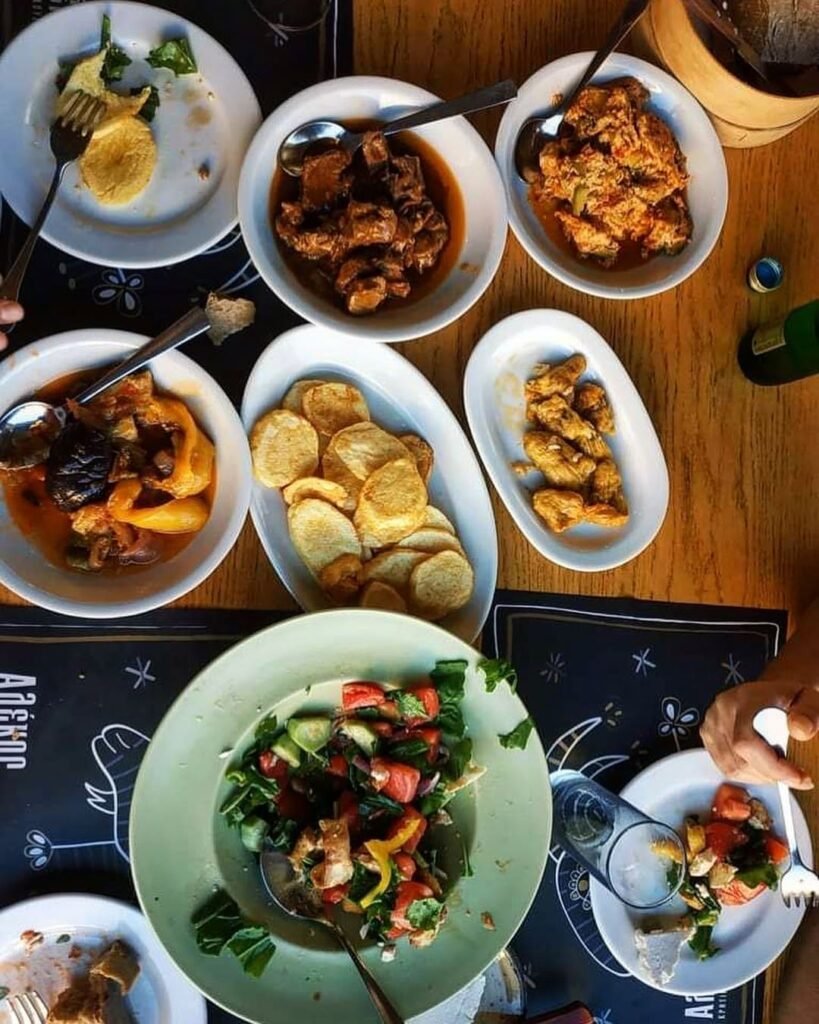
Do not be too picky about food modifications. While most tavernas will accommodate simple requests like omitting onions from a salad, showing an attitude of wanting to alter multiple traditional dishes may not be well-received. Cretans take pride in their authentic cuisine.
Do not forget to express gratitude. Saying “Ευχαριστώ” (Efharisto)—meaning “thank you”—after a meal or when receiving hospitality is a simple yet meaningful way to show appreciation for Cretan generosity.
Cultural Sensitivity in Crete
Respecting Cretan cultural identity requires awareness of several key aspects of local heritage and traditions.
Do not call Cretans simply “Greeks” without acknowledging their distinct identity. While they are Greek citizens, many Cretans strongly identify with their island’s unique culture and history. Many proudly consider themselves Cretans first, Greeks second.
Do not criticize or mock local traditions. Cretans are deeply proud of their heritage. Disparaging comments about traditional clothing, music, dances, or customs are considered deeply offensive.
Do not underestimate the importance of music and dance in Cretan culture. Traditional Cretan music, like the sounds of the lyra and laouto, along with dances such as the Pentozali, are expressions of cultural identity and pride.
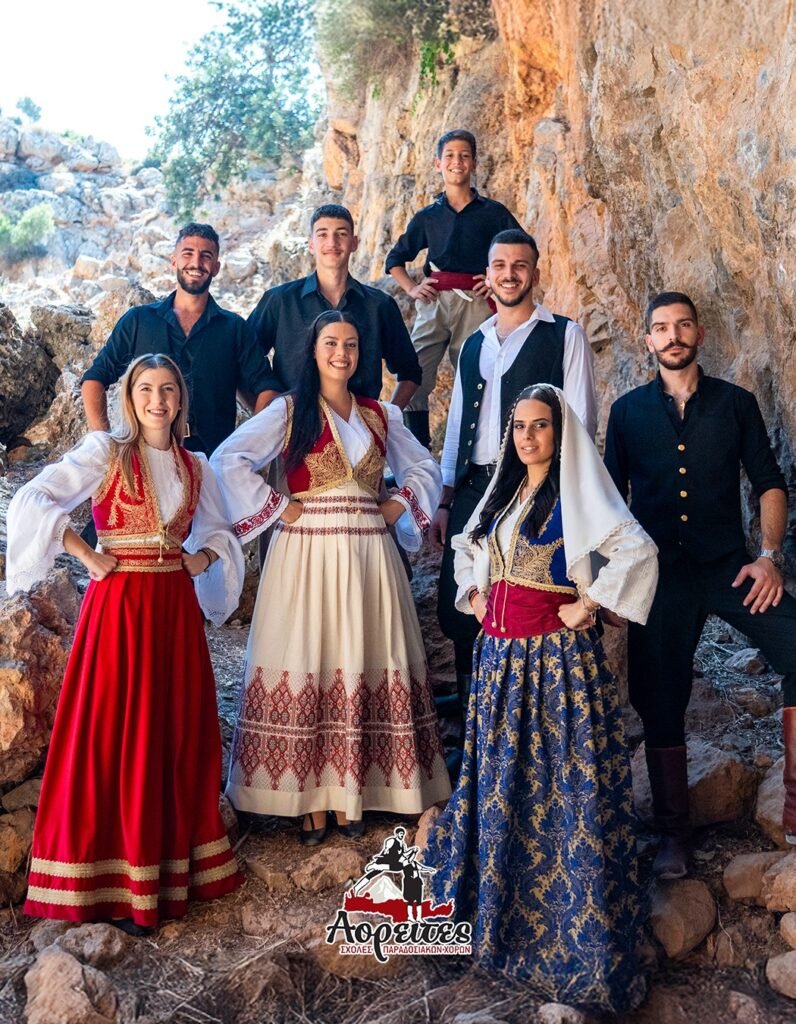
Do not ignore the symbolism of traditional items. Objects like Cretan daggers and walking sticks (katsouna) hold symbolic value, representing honor, pride, and protection. Similarly, the (evil eye), a widely recognized symbol in Greek culture, is believed to ward off envy and misfortune. Often seen as jewelry or decorative items, the mati serves as both a charm of protection and a reflection of cultural heritage. Treating these items casually or disrespectfully can be seen as offensive.
Do not disregard the value of hospitality. The concept of filoxenia (love of strangers) is central to Cretan culture. Refusing an invitation or gift can be perceived as rejecting their generosity.
Do not misinterpret superstitions. Practices like (fake) spitting three times after hearing good news, for good luck or warding off the Evil Eye are deeply rooted in tradition. Respect these customs as part of the island’s rich cultural fabric. Read more about Greek superstitions that Cretans take very seriously here.
Do not forget the importance of family. Family is central to Cretan society, influencing traditions and daily life. Speaking negatively about family values can offend locals. Crete is very family-friendly, and locals adore children—showing respect to children will instantly earn you goodwill.
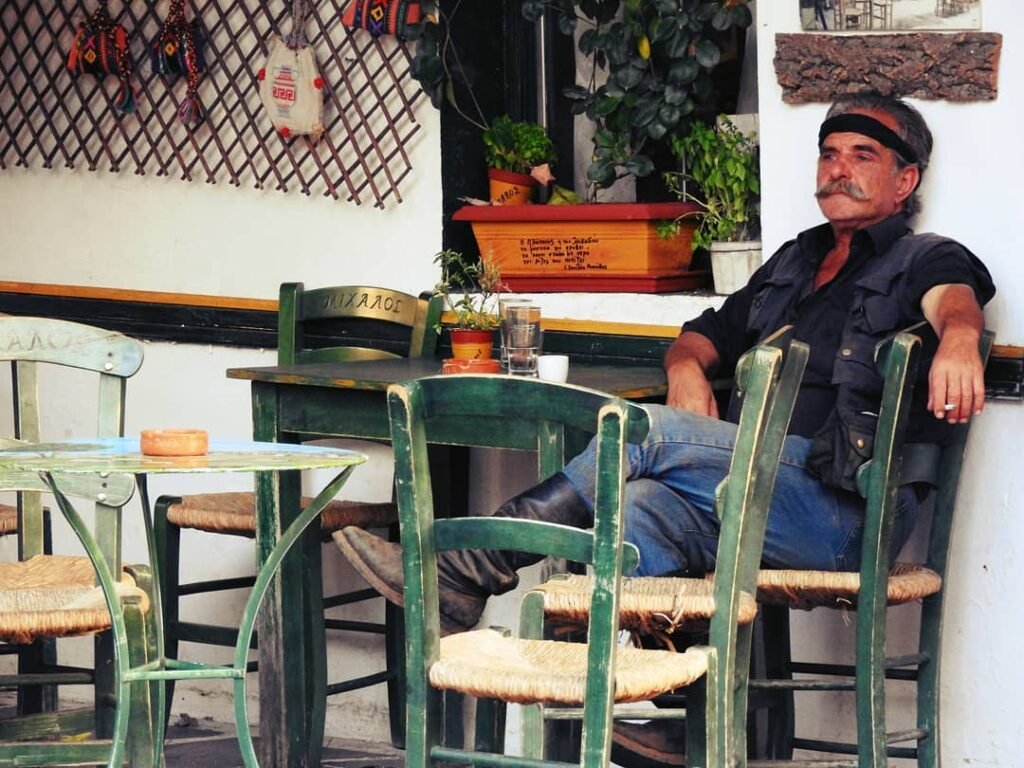
Do not photograph locals without permission. While Crete’s picturesque villages and traditional-dressed elders might seem like perfect photo subjects, always ask before taking pictures of local people. A simple gesture and “Parakalo?” (please?) with your camera shows respect for their privacy and dignity. Most Cretans are friendly and may happily pose once asked, and some might even share stories or show you more aspects of their daily life, but the key is to ask first rather than treating people as tourist attractions.
Social Norms and Behavior in Crete
Understanding these unwritten rules of Cretan society will help you navigate social situations with confidence and respect.
Do not expect punctuality at social events. In Crete, being slightly late (20-30 minutes) for social gatherings is often acceptable and even expected. As the saying goes: “Northern Europeans have watches. In Crete, we have time.”

Do not insist on paying the bill when dining with locals. Cretans are known for their hospitality and often insist on treating guests. Trying to pay can lead to uncomfortable arguments. If you wish to contribute, do so discreetly.
Do not overlook the importance of respecting elders. In Cretan society, elders are highly valued for their wisdom and life experience. Address them politely using titles like “Κύριε” (Kyrie, Sir) or “Κυρία” (Kyria, Madam), and offer assistance when needed, such as carrying items or giving up your seat.
Do not misinterpret directness. Cretans, like many Greeks, communicate in a direct style that might seem blunt to visitors from more reserved cultures. This directness isn’t meant to offend but is a sign of honesty and openness. You’ll always know where you stand with a Cretan—they show their feelings clearly.
Do not ignore tipping customs. While tipping in Crete is not mandatory, it is appreciated as a gesture of gratitude for good service. In tavernas, rounding up the bill or leaving around 5-10% is customary if service isn’t included. For taxi drivers, rounding up the fare (e.g., from €8.50 to €9 or €10) is sufficient, especially if they assist with luggage. Cretans value the gesture more than the exact amount, so don’t overthink percentages. Leaving coins on the table is perfectly acceptable, but you can also hand the tip directly to your server or include it when paying your bill.
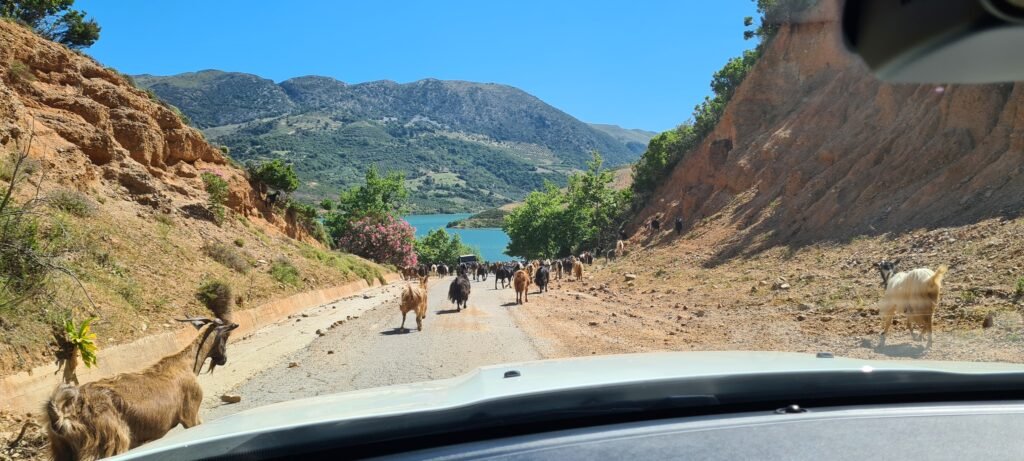
Do not cross your legs in formal settings or when speaking with someone of higher status, as this can be considered disrespectful.
Do not drive recklessly or criticize local driving habits. Although driving styles in Crete might seem unconventional to visitors (such as unique overtaking strategies, flashing lights to signal passing, or creative interpretations of traffic laws), this reflects their independent and free spirit rather than carelessness. By adapting your driving style and showing patience on the road, you demonstrate respect for Cretan customs and their way of life.
Do not ignore local driving conventions. On Crete’s roads, especially the New National Road, slow drivers are expected to pull onto the hard shoulder (emergency lane) to allow faster vehicles to overtake. This is a common and courteous practice that demonstrates respect for other drivers. However, be cautious, as hard shoulders can be narrow, end abruptly, or be obstructed by rockfalls.
Do not decline generosity. If a Cretan invites you to stay longer, share a meal, or accept a small gift, trying to refuse might cause offense. Their hospitality is offered with genuine warmth and refusing it can seem ungrateful.
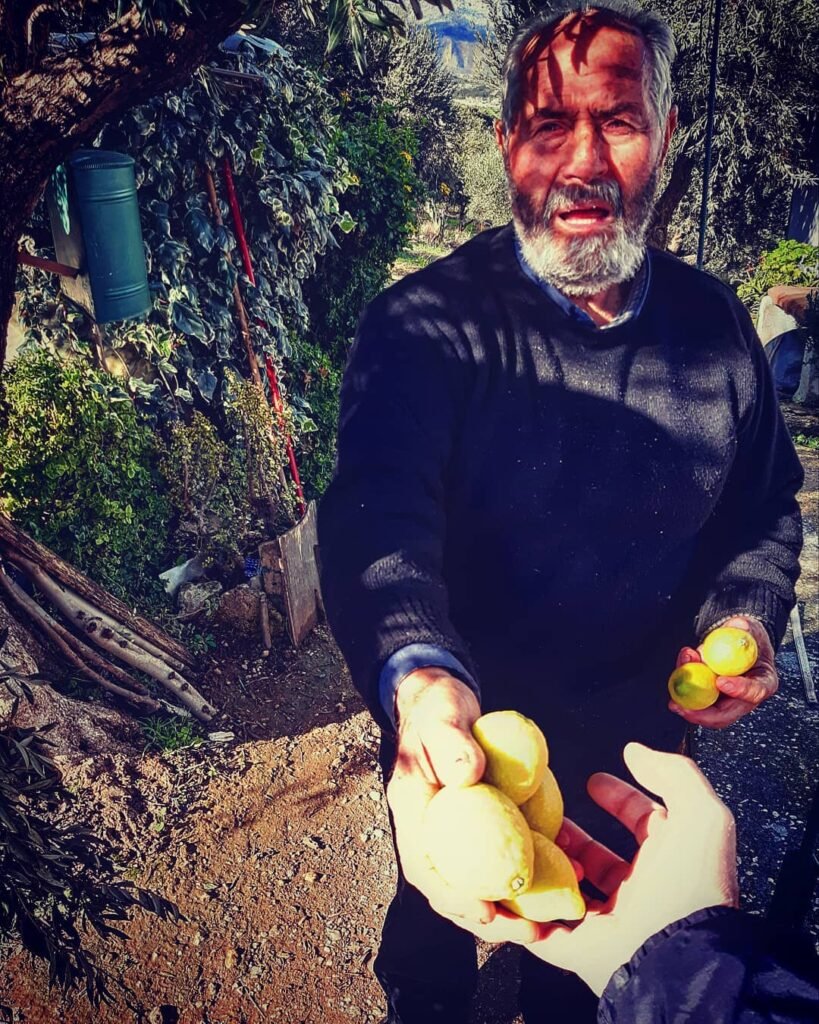
Religious and Historical Sites in Crete
Crete’s rich religious and historical heritage demands particular respect and adherence to specific protocols.
Do not disrespect religious symbols. Avoid touching or pointing at religious icons or artifacts in churches. Always show reverence in these sacred spaces.
Do not ignore dress codes at monasteries and churches. These sites often have strict dress requirements. Failing to adhere to these rules might result in being denied entry or causing offense.
Do not touch artifacts or icons. Many items are fragile and protected by strict rules. Admire these treasures from a respectful distance.
Do not behave disruptively in solemn places like Spinalonga Island, where many leprosy patients suffered and died isolated from their families. Some visitors treat such places merely as photo opportunities without appreciating their tragic history.
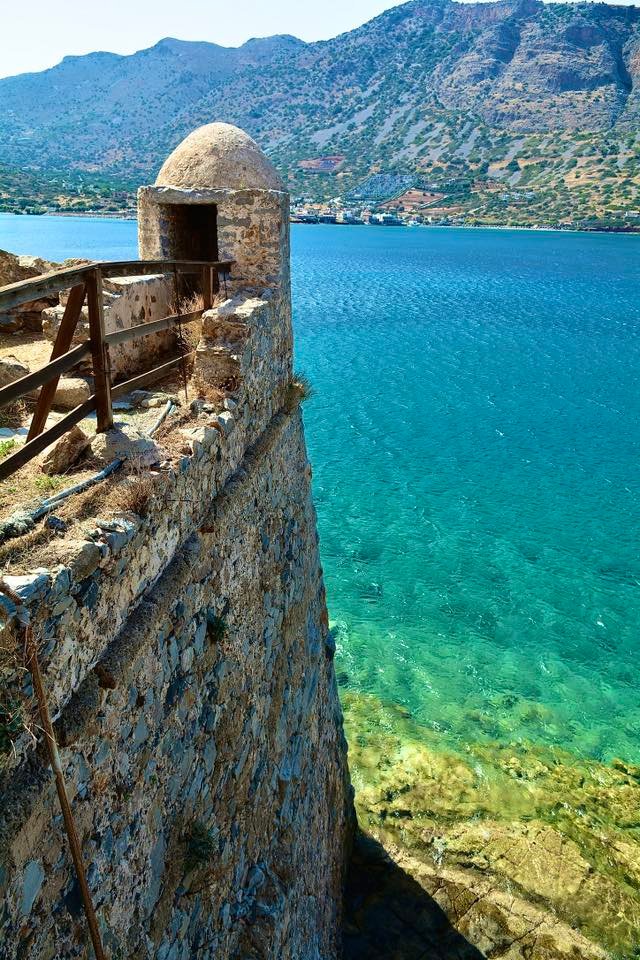
Do not eat, drink, or smoke inside religious sites. These activities are strictly forbidden in churches and monasteries. Save refreshments for designated areas outside.
Do not enter restricted areas in monasteries or churches that are designated exclusively for monks or clergy.
Do not interrupt religious services. If you visit during a liturgical service, maintain silence and avoid walking around or taking photos. Allow worshippers to pray undisturbed.
Do not ignore the site’s significance. Taking time to understand the history and spiritual importance of a site before visiting demonstrates genuine interest and respect for Cretan heritage.
Do not leave your phone ringer on. Always switch your phone to silent mode when entering churches, monasteries, or historical sites. An unexpected ring or notification sound can disturb the peaceful atmosphere, interrupt services, or distract other visitors seeking a contemplative experience. This simple act of consideration shows respect for both the sacred space and other visitors.
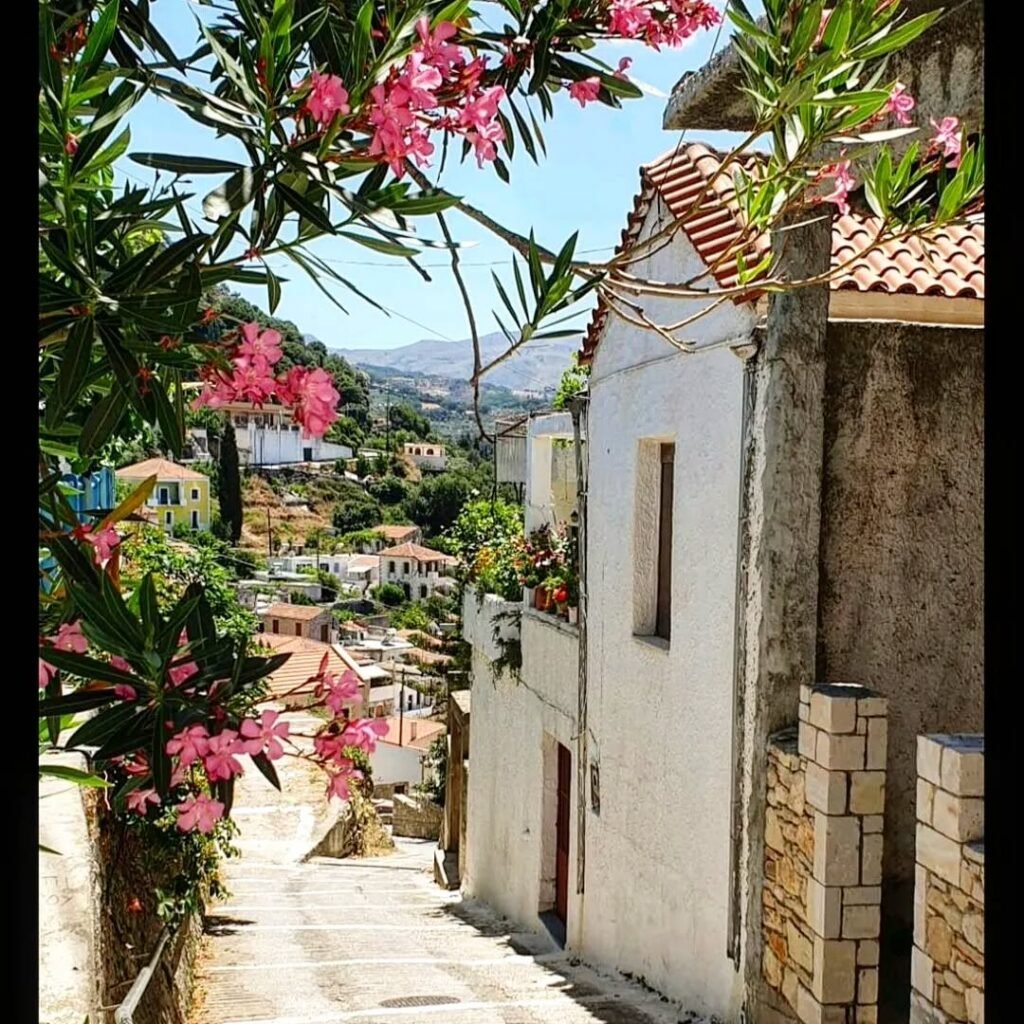
Conclusion
Respecting Cretan customs and traditions is key to a harmonious and enriching experience on this enchanting island. By avoiding these common cultural missteps and embracing local norms, visitors can foster genuine connections with the warm and hospitable people of Crete.
The beauty of Cretan culture lies in its authenticity and the way traditions remain woven into daily life rather than preserved merely for tourists. By approaching interactions with respect and curiosity, you’ll discover that Cretans’ “siga siga” philosophy, boundless hospitality, and strong community bonds offer valuable lessons about what truly matters in life.
Many travelers who show genuine respect for Cretan ways find themselves returning year after year, often describing it as “coming home to family” rather than merely revisiting a vacation spot. This special connection isn’t accidental—it’s born from the mutual respect that develops when visitors take time to understand and honor local customs rather than expecting the island to adapt to them.
When you respect their customs, you’ll find Cretans are among the most welcoming people you’ll ever meet—ready to share their food, their stories, and a glass of raki with anyone willing to slow down and appreciate their timeless way of life.
Further Reading:

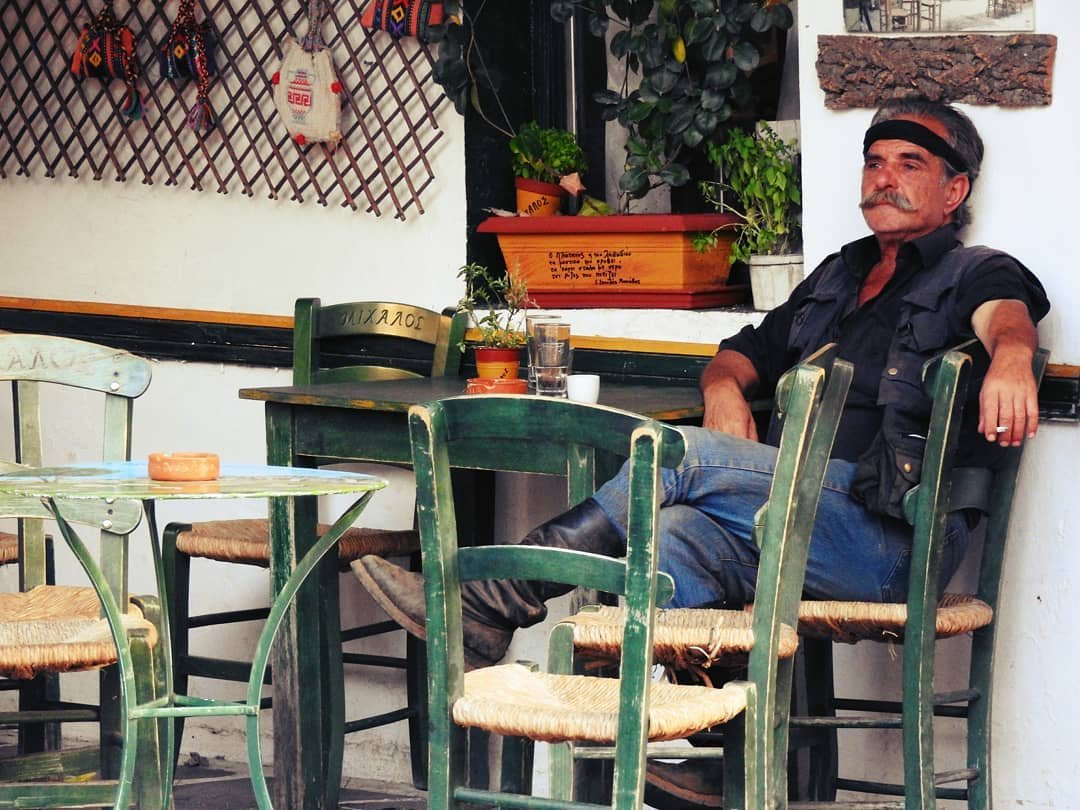
A similar experience happened to my wife about 20 years ago ,whilst driving through the hills around Panarmo my wife needed a comfort break as I was driving a spotted a coke sign out of the corner of my eye,we parked up further on and walked back to this house with a couple of tables and chairs in our basic greek we were able to order a couple of soft drinks and a bottle of water from this lovely elderly lady and before we knew it plates of fresh cherries from her garden and raki appeared in front of us before we even got our drinks, as my wife isn’t that keen on raki after about an hour of this hospitality she had to take over the driving for our return trip to our accommodation.As you said in your article it’s rude to refuse.
What a beautiful memory to share! This is exactly the kind of moment that makes Crete so special. You stop for a simple comfort break and end up with cherries from the garden, raki, and an hour of genuine hospitality you never planned for. Just a sweet elderly lady sharing what she had.
And I love that your wife had to take over the driving after all that raki! 😅 The things we do in the name of not being rude, right?
Thank you for taking the time to share this. Stories like yours remind me why I started this community in the first place. Twenty years later and you still remember it so vividly. That says everything about what Cretan hospitality does to the heart.
Με πολλή αγάπη,
Bella 💙